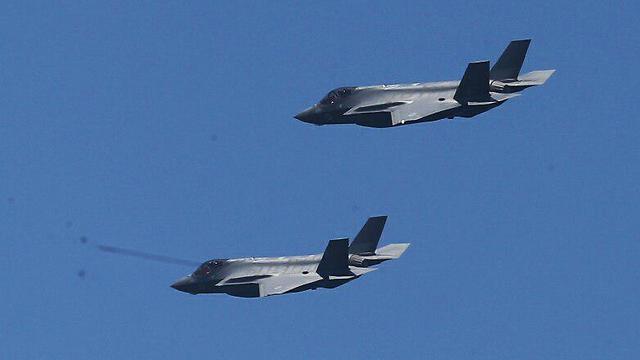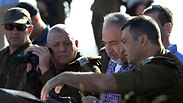
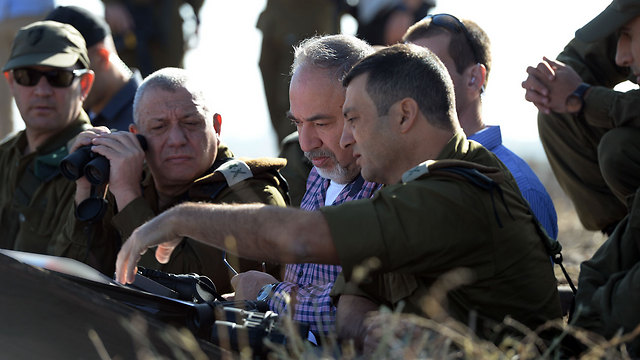
IDF seeks higher budget to handle 'dramatic shift in region'
Army, defense minister, look to renegotiate 5-year Gideon plan reached with Finance Ministry to receive additional NIS 4.8 billion; noting major changes in region, advocates cite Iranian entrenchment in Syria, Palestinian reconciliation as game-changers necessitating more funds; MoF objects, demands army trim its own 'fat' first.
Defense Minister Avigdor Lieberman has been engaged in marathon discussions with Finance Minister Moshe Kahlon following the security establishment's demand to add NIS 4.8 billion to the IDF's budget in addition to the terms delineated in the Gideon MYP (multi-year plan).

"There has been a fundamental, dramatic shift in the region. Some things we can discuss openly and some we can't. Any mistake can set off the entire region. No intelligence could have foreseen the lighting-quick changes such as the Lebanese prime minister's resignation. Many changes couldn't have been predicted. Our first goal is to prevent the next war and that can only be achieved using active interwar operations (clandestine IDF missions foiling the growth in enemy strength—ed) and shoring up deterrence," Lieberman said.

A senior IDF officer stressed the army's special operations to prevent Israel's enemies arming themselves with advanced weaponry have shifted "a click to the right. When we started with the MYP we realized we could shift resources from handling third-tier threats back to first-tier threats due to the (Iranian) nuclear agreement, but that working premise is completely in flux right now."
More tools were needed, the officer continues, for "providing better penetrative capabilities and precise armaments. Now's our time to make a difference. Iranian military industries have been closing the gaps on technological capability. We've stretched the Gideon plan's budget to its breaking point."
Senior finance officials, meanwhile, deflected the defense officials' claims and stated in no uncertain terms they had no intention of renegotiating the already-agreed program. "This is precisely why we decided on a five-year plan to begin with: to prevent these tiffs and demands for billions of shekels more. If the security establishment wants more funds, it'll need to take it out of its own spending," the officials said.
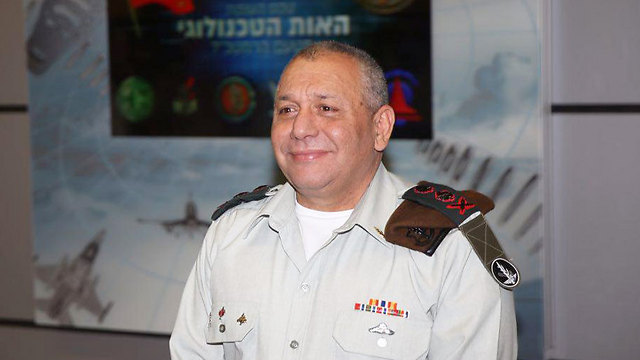
"The security establishment points out the region's changes every year. If they want to cancel the five-year plan outright, that's fine, and we'll convene a discussion on it. When the Syrian threat was off the table we didn't see the defense budget shrinking. There's a lot of 'fat' still left to trim from the defense establishment, and we both know exactly where it is. The chief of staff is indeed working to trim it. Regardless, the minister of defense has to be bound by his predecessor's agreement," the finance officials noted.
'Working on the understanding of the potential for escalation'
The minister of defense did not specify the reason for such a significant change, but outlined three trends he said characterized the new challenges the IDF now faces, and their attendant implications.
The three challenges are massive Russian presence in Syria, which has changed the region's balance of power, the accession of precise weaponry into the region, possessed not just by Hezbollah, and a significant acceleration in the Iranian nuclear program. Lieberman also noted Syrian President Bashar al-Assad only possessed 90 percent of Syrian territory.
Lieberman also claimed the IDF had to deal with several unplanned expenses over the past two years, including participation in the creation of the new anti-tunnel underground barrier along the Gaza Strip worth NIS 300 million and NIS 270 million spent on enlarging the West Bank security barrier.
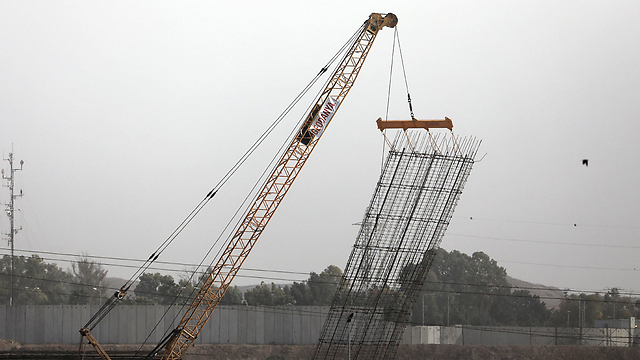
The senior officer who stated the army stretched the Gideon plan's budget as far as it could noted stability-breaching elements in the Palestinian arena.
"We never imagined the Shiite axis would entrench in Syria two years ago. We didn't think of the Palestinian reconciliation or how explosive that arena is. We're trying to leverage multiple elements to set out our own red lines and to shape reality by our own activities. Our actions are continuous and far reaching, born of the understanding of the immense potential for escalation, while nevertheless stopping short of war," he said.
No tidings from the US
Israel's security expenses grew in smaller increments compared to comparative expenses in other Middle Eastern countries. "Our increase in the past few years has been 13 percent, compared to 35 percent in neighboring countries, including Gulf countries," a senior official said.
Neighboring countries have been purchasing more fighter jets and precise armaments, the official said, adding hostile countries have also shown an increase of 10 percent more compared to Israel's security budget.
"The entire Israeli security budget stands at $18 billion, comprising 11.7 percent of the total budget. Iran's security budget grew to $23.5 billion, making up 22 percent of their country's budget," the official added, noting a two, three or fourfold increase in the past decade on the price of armaments, ranging from fighter jets to tanks.
The increase sought by the army will spread out over the Gideon plan's three remaining years. The IDF will finance a quarter of the addition from its own budget, through reorganization processes, but it appears the Ministry of Finance will not be quick to approve the request of its own volition. The Cabinet will most likely end up deciding on the matter itself.
During the briefing, army sources explained no tidings will be found within the new American security aid agreement, spanning the next decade, as the Americans have once again conditioned the aid on purchasing American-made products, which will necessitate the transfer of some Israeli industrial factory lines, such as the one for the Namer APC, to the US.
In addition, in about a year the IDF will have to start spending NIS one billion on fuel, previously paid for by US aid.














